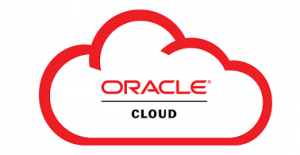What should I know?
This guide is intended for beginners. Further help would be basic knowledge of cloud computing, networking, storage, security.
What is Cloud Computing?
Cloud computing is a term used for internet storage and access to data. It does not store any data on your personal computer’s hard disk. You can access the data from a remote server in cloud computing.
What is AWS?
Amazon Web Service is a network that provides cloud computing solutions that are versatile, secure, scalable, simple to use, and cost-efficient.
AWS is an Amazon delivered vast, easy-to-use computing platform. Combining infrastructure as a service (IaaS), platform as a service (PaaS) and bundled software as a service (SaaS) offerings, the platform is developed.
History of AWS
- 2002- AWS services launched
- 2006- Launched its cloud products
- 2012- Holds first customer event
- 2015- Reveals revenues achieved of $4.6 billion
- 2016- Surpassed $10 billion revenue target
- 2016- Release snowball and snowmobile
- 2019- Offers nearly 100 cloud services
- Important AWS Services
Amazon Web Services provides a wide variety of global cloud-based products for various business purposes. The products include servers, databases, analytics, networking, mobile devices, development software, business apps, with a pricing model pay-as-you-go.
Here, are essential AWS services.
Here, are Cloud Compute Services offered by Amazon:
EC2(Elastic Compute Cloud) – EC2 is a virtual storage server on which you have control of the OS level. If you like, you can run this cloud server.
LightSail - This cloud computing platform deploys and manages the device, storage, and networking resources needed to run your applications automatically.
Elastic Beanstalk — The tool provides automated deployment and resource provision such as a highly scalable website for development.
EKS (Elastic Container Service for Kubernetes) —The application lets you uninstall Kubernetes on Amazon’s cloud network.
AWS Lambda —This AWS software allows you to execute Cloud services. The method is a perfect cost saver for you because you just have to pay while performing the tasks.
Migration
Migration tools used to physically move data between the AWS and your datacenter.
- DMS (Database Migration Service) - DMS service can be used to move databases on-site to AWS. It lets you move from one database form to another — like Oracle to MySQL for example.
- SMS (Server Migration Service) -The SMS migration services allow you to easily and rapidly migrate servers on-site to AWS.
- Snowball — Snowball is a simple program that allows you to move terabytes of data inside and outside AWS.
Storage
- Amazon Glacier- It is an incredibly low-cost storage facility. It offers fast and efficient data archiving and backup storage.
- Amazon Elastic Block Store (EBS)- It offers storage at block-level for use with Amazon EC2 instances. Volumes of the Amazon Elastic Block Store is network-attached and remain independent of an instance’s existence.
- AWS Storage Gateway- This AWS service links cloud-based storage on-premise device applications. It offers a stable connection between the on-premises of the business and the storage facilities of AWS.
Security Services
- IAM (Identity and Access Management) —IAM is a secure cloud protection service that lets you control multiple accounts, delegate policies, and shape groups.
- Inspector —It is an agent you can install on your virtual machines, which recorded any vulnerabilities to protection.
- Certificate Manager — The service offers free SSL certificates for your domains that are managed by Route53.
- WAF (Web Application Firewall) —WAF Protection Service offers security at the application level and allows you to block SQL injection and helps block cross-site scripting attacks.
- Cloud Directory —This service enables you to build scalable, cloud-native directories for managing multidimensional data hierarchies.
- KMS (Key Management Service) —It is a service that is operated. This security service lets you build and manage the encryption keys that allow encryption of your data.
- Organizations —With this tool, you can build AWS account groups to handle the security and automation settings.
- Shield — DDoS (Distributed Denial of Service Security service) is operated by Shield. It offers protection against web applications that run on AWS.
- Macie —It offers a security service for data visibility which helps to identify and protect your critical sensitive information.
- GuardDuty —This offers vulnerability monitoring to protect the AWS accounts and workloads.
Database Services
Analytics
- Athena — This analytics service allows perm SQL queries on your S3 bucket to find files.
- CloudSearch —This AWS service can be used to build a completely controlled search engine for your web site.
- ElasticSearch —It’s analogous to CloudSearch. It does offer more functionality, however, such as device management.
- Kinesis —This AWS analytics software allows you to massively stream and analyze the data in real-time.
- QuickSight —It is an analytics tool for companies. It lets you create visualizations for the Amazon Web Services data in a dashboard. For instance, S3, DynamoDB, etc.
- EMR (Elastic Map Reduce) —This AWS analytics software is used primarily for the analysis of big data such as Spark, Splunk, Hadoop, etc.
- Data Pipeline —Allowing you to transfer data from one location to another. So from DynamoDB to S3, for example.
Management Services
- CloudWatch — Cloud watching lets you track AWS environments such as EC2, RDS instances, and Processor use. It causes warnings depending on various parameters, as well.
- CloudFormation — It’s a way to transform technology into the cloud. Templates can be used to include an entire production environment in minutes.
- CloudTrail — It offers a simple auditing tool for AWS services. This helps in logging in all changes.
- OpsWorks — The service allows you to make automated deployments of Chef / Puppet to the AWS system.
- Config — This AWS service tracks the world around you. When you break certain specified configurations the tool sends notifications about changes.
- Service Catalog — This program allows big companies to approve which consumer services should be used, and which will not.
- AWS Auto Scaling — The service enables you to automatically scale up and down your resources based on specified CloudWatch metrics.
- Systems Manager — This AWS software allows you to pool your money. It lets you identify and act on problems.
- Managed Services—It provides management of your AWS network allowing you to concentrate on your applications.
Application Services
- Step Functions — It’s a way to imagine what’s going on inside the program, and what microservices it uses.
- SWF (Simple Workflow Service) — The program helps organize automated activities as well as human-led activities.
- SNS (Simple Notification Service) — You can use this service to send you updates based on provided AWS services in the form of e-mail and SMS.
- SQS (Simple Queue Service) — To decouple your applications using this AWS tool. It is a service that is focused on the pull.
- Elastic Transcoder — This AWS software interface helps you adjust the size and resolution of a video to suit various devices such as tablets, smartphones, and laptops with specific resolutions.
Deployment and Management
- AWS CloudTrail: The services record calls from the AWS API, and give you backlog files.
- Amazon CloudWatch: The software tracks resources from AWS such as Amazon EC2 and DB Instances from Amazon RDS. This also helps you to track custom metrics generated by the applications and services offered by users.
- AWS CloudHSM: Through using the Hardware Security Module(HSM) appliances inside the AWS environment, this AWS service helps you meet corporate, regulatory, and contractual enforcement requirements to maintain data protection.
Developer Tools
- CodeStar — Codestar is a cloud-based application designed to build, manage and operate on AWS for various software development projects.
- CodeCommit — It is a version control service from AWS that allows you to privately store your code and other properties in the cloud.
- CodeBuild — This Amazon developer service allows you to simplify the development and compilation process of your code.
- CodeDeploy — This is a way of automatically installing the application in EC2 instances.
- CodePipeline — This lets you create a deployment system, such as planning, building, planning, authentication, creation and production environments deployed.
- Cloud9 —This is an advanced programming platform designed to write, run, and debug code in the cloud.
Business Productivity
Artificial Intelligence
Customer Engagement
Applications of AWS services
- Web site hosting
- Application hosting/SaaS hosting
- Media Sharing (Image/ Video)
- Mobile and Social Applications
- Content delivery and Media Distribution
- Storage, backup, and disaster recovery
- Development and test environments
- Academic Computing
- Search Engines
- Social Networking
Companies using AWS
- Zoopla
- Talkbox
- Playfish
- Ftopia
- Smugmug
- Netflix
- Dropbox
- Etsy
Advantages of AWS
- AWS enables the already common programming models, operating systems, databases and architectures to be used by organizations.
- It is a cost-effective service that allows you to pay only for what you are using, without any commitments upfront or long term.
- You won’t need to waste money operating and maintaining data centers.
- Offers fast deployments
- You can easily add or remove capacity.
- With unlimited power, you are given swift access to the cloud.
- Ownership overall cost is very small as compared to any private/dedicated computer.
- Offers Centralized Billing and management
- Offers Hybrid Capabilities
- Enables you to deploy your application with just a few clicks in several regions around the world
Disadvantages of AWS
- You’ll have to opt for paid service packages if you need more urgent or intense assistance.
- Amazon Web Services can encounter some common problems with cloud computing when you switch to a cloud. For example, downtime, restricted control, and security against backups.
- AWS sets default resource limits which vary from region to region. Those tools are photos, volumes, and snapshots.
- Changes in the hardware level occur in your application and do not provide the maximum performance and use of your applications.
Best practices of AWS
- You need to plan for failure so there’s nothing going to fail.
- It is critical that all of your components be decoupled before using AWS services.
- You need to keep dynamic data closer to the user in order to simulate and closer to the static data.
- Understanding tradeoffs on safety and performance is critical.
- The hourly payment form charges for the processing power.
- Create a one-time payment habit for every instance you wish to book and earn a substantial discount on the hourly fee.
10 Best AWS Competitors and Alternatives in 2020
AWS is the cloud storage platform for Amazon which offers fast, scalable, reliable and cost-effective solutions. This also provides a service in the form of build blocks which can be used to develop and deploy different types of cloud applications.
AWS services, however, set default limits on a resource that differs from region to region. Often, adjustments in the hardware level occur with your application, which does not provide the optimum performance and use of your application.
Here is a list of the top 10 AWS alternatives to replace AWS cloud computing services. This list includes paid and open-source resources with essential features and the most recent link.
1) Cloudways

Cloudways offers a cloud-managed infrastructure for businesses, stores, and SMBs. The company has formed partnerships with top cloud providers including AWS, Google Cloud, DigitalOcean, Vultr, and Linode. Experience the freedom to create, deploy and manage applications like PHP, Laravel, WordPress, and Magento with no cloud server management experience needed. Cloudways users can concentrate on business growth without worrying about server management, security, and maintenance technical complexities.
Features Include:
- Servers set for PHP 7
- 1-Click Download of the App
- PHP-FPM and Redis préconfigured
- Free SSL Certificates
- Automated Backups
- Staging Environment
Click Here for More Information
2) Microsoft Azure

Azure is a cloud computing platform launched in February 2010, by Microsoft. This open-source and scalable cloud platform that assists in solutions for development, data storage, service management & hosting.
Features:
- Windows Azure is the most effective approach to your data needs
- Provides scalability, versatility, and value for money
- Provides stability across clouds with common instruments and services
- Enable you to scale up and down your IT resources according to your business needs
Click Here for More Information
3) Google Cloud Platform

Google Cloud is a collection of products and software that includes GCP & G Suite. This lets you quickly overcome all sorts of business problems.
Features:
- Enables you to scale using free, scalable technology
- Solve open AI&Data analytics problems
- Eliminate the need for costly servers
- Enables you to transform your company using a complete suite of cloud-based services
4) VMware

VMware is a comprehensive forum for cloud management. It lets you handle a hybrid system that runs workloads from conventional to the container. The tools will allow you to optimize your organization’s profits.
Features:
- Hybrid Cloud Management Framework ready for enterprise
- Offers Private & Public Clouds
- Comprehensive reporting and research that boost the forecasting and planning capabilities
- Offers additional 3rd party and custom framework integrations, and tools.
- Provides Agile, scalable services
5) Oracle Cloud

Oracle Cloud provides creative cloud services that are incorporated. It helps in designing, deploying, and handling workloads in the cloud or on-premises. Oracle Cloud also helps companies simplify and reduce uncertainty.
Features:
- Oracle provides more options on when and how you move to the cloud
- Oracle makes you understand the importance of new technology such as Artificial Intelligence, Chatbots, Machine Learning and more
- Offers Mission-critical data processing of the next generation in the cloud
- Oracle offers unsanctioned software greater exposure and defends against advanced cyber attacks
6) IBM Cloud

IBM cloud is a full-stack cloud platform that covers hybrid, private and public environments. It is built with a comprehensive suite of specialized software and AI.
Features:
- IBM cloud serves as a data network (IaaS), as data applications (SaaS) and as a web platform (PaaS)
- IBM Cloud creates innovation that lets you achieve value for your company
- It provides high-performance cloud communication and services within the IT environment
7) Dell Cloud

Dell offers and supports in one location, a cloud platform, web-enabled applications, models. This helps you to choose between reference architecture, centralized and public cloud systems, including your own.
Features:
- Cloud which works with your current operations
- Virtual use by Dell Financial Services
- Speed up the transition using professional cloud services
8) Kamatera

Kamatera built a cloud storage platform that is very similar to a physical server. It worked in a cloud with virtual infrastructure, making it highly scalable and cost-efficient. Pricing this cloud service is based on pay, because you use an industry-standard model.
Features:
- 13 Ultimate Efficiency and Accessibility data centers spanning four continents
- Tailor-made VPS hosting to suit your needs
- Scalability: Helps you to easily add load balancers, firewalls, private networks and applications like pfSense, Docker, CPanel, Drupal, Jenkins, WordPress, Magento, node. JS and more.
- Both Open TRAFFIC SSD’s. 99.95 percent assured uptime
- 30 Day Free Trial to test the services
9) DigtialOcean

The droplet of Digitalocean is a machine service that is scalable. More than just virtual computers. This cloud platform provides storage, protection, and monitoring capabilities to easily run production applications.
Features:
- Allows you to deploy your custom image, application with one click or standard distribution
- You can deploy droplets and get a reliable connection and flat price in 8 data center regions
- Select Standard Plans or Quality Plans depending on your company needs
10) Alibaba Cloud

Alibaba is China’s largest cloud computing company. It is a new platform that built a global footprint with more than 1500 CDN nodes of 19 regions worldwide and 56 availability zones across over 200 countries.
Features:
- Helps you produce faster results
- Helps you secure your data and back it up
- Total authorizations and several forms of management
- Highly secure software, and safe storage of data

